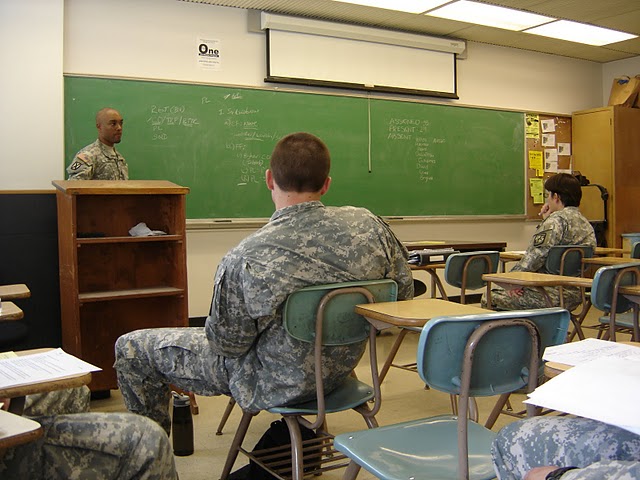Military Experience To Fast Track Engineering Degrees
The SDSU Troops to Engineers program could offer veterans class credit for real-world experience.

Thousands of veterans across the country could receive college credit in engineering for the training they received while in the military, thanks to a study by San Diego State University’s College of Engineering.
The study, known as Transitioning Troops to Engineers: From Military Experience to a Civilian Career, is the result of a $200,000 National Science Foundation (NSF) grant. It hopes to identify courses offered through all branches of the military that significantly translate to those required by SDSU to earn a degree in engineering.
It has the potential to allow SDSU to forgive some of those classes, ultimately serving as a model for other engineering schools, and potentially other majors, across the country.
“We have thousands of highly trained, highly skilled veterans coming out of the military over the next several years. We need to have a way to give them credit for the specialized training they’ve already received,” said David Hayhurst, dean of SDSU’s College of Engineering.
“The state of California, and the entire country, has a shortage of engineers. This program will help produce more of the men and women who will fill those roles for our future.”
National Science Foundation effort
The NSF Troops to Engineering program initiated studies at six universities located in military regions across the country. Each university is looking at a specific issue related to helping veterans transition from military careers to civilian engineering careers. The ultimate goal is to bring each of these studies together to help veterans earn their engineering degrees and get into the work force more quickly.
Other universities participating include:
- Syracuse University: "From Battlefield to Classroom: Designing pathways to engineering for American GIs"
- Mississippi State University: "Transitioning America's Veterans to STEM Academic Programs"
- University of San Diego: "Connecting Veterans to Customized Engineering Education at the University of San Diego"
- University of Pittsburgh: "Experiential Learning for Veterans in Assistive Technology and Engineering (EleVATE)"
- Virginia Tech: "VETERANS@VT: A program for Recruiting, Transitioning and Supporting Veterans to Graduate Programs in Engineering and Beyond to Civilian Careers"
“The outcome could result in anywhere from three to five upper-division courses being forgiven toward a degree, equaling potentially a full semester’s worth of work.”
About the study
The study at SDSU began with an initial review of nearly 15,000 training courses offered by the military during the last decade in all areas and topics, from laundry and cooking to building construction. The search was narrowed to approximately 980 courses with relevant key words, such as "engineering" and "materials."
“'Engineer' means to blow things up in the military,” said Alyson Lighthart, who is heading the study for SDSU. “So, it’s a matter of going through each individual course and finding the ones that are actually relevant to SDSU’s engineering curriculum.”
Outcomes could forgive required course work
Lighthart said they have narrowed the search now to approximately 300 Military Occupational Specialty courses.
The next step is to obtain actual descriptions from each course to make the determinations as to how many can truly translate to courses required by the engineering program at SDSU. The outcome could result in anywhere from three to five upper-division courses being forgiven toward a degree, equaling potentially a full semester’s worth of work. It could also show that some form of bridge courses or remediation work would still need to be done.
“One of the things that is critical to engineering course work is calculus,” Lighthart said. “In the military the training is more focused on the hands-on work, and less on the science and math behind it, as is required by a university. So a lot of the time the math is not up to the required levels.”
A second grant proposal to NSF, the Success in Engineering for Recent Veterans through Internship and Career Experience (SERVICE) program, if funded, will help address these issues.
Of the seven degree programs at SDSU, it appears so far that the greatest potential match to military training is in the construction engineering degree. Civil, mechanical and aerospace engineering may also be good fits.
The current study is funded from October 1, 2009 to September 30, 2010. Each of the universities participating will present their findings and make recommendations for future work and programs to the NSF.
Related Stories:
New Veteran Affairs Office Opens at SDSU




